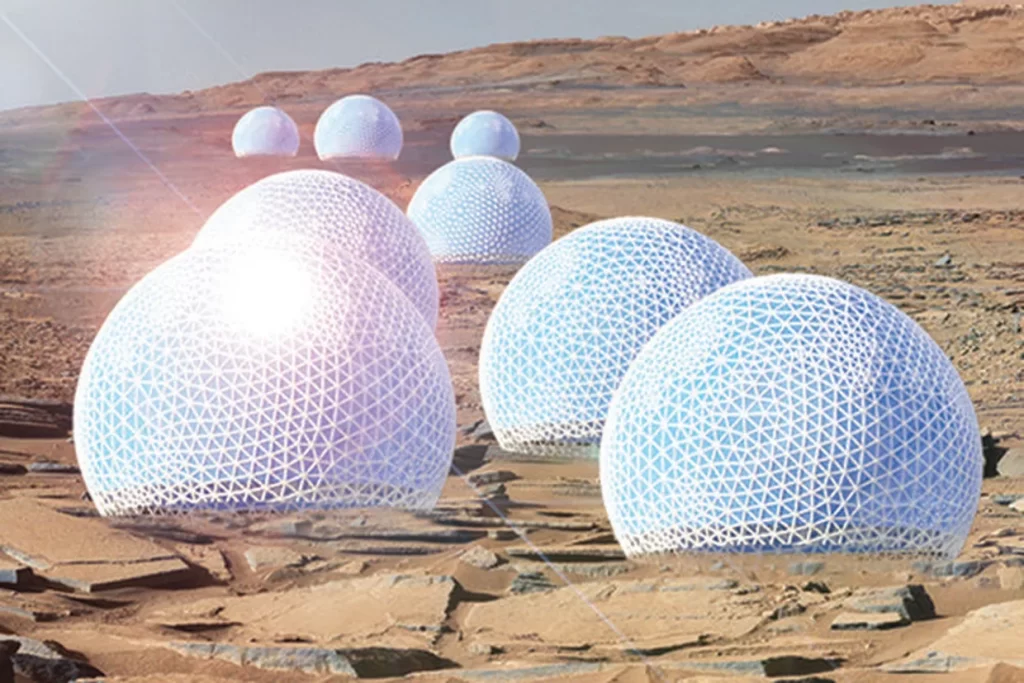An ecologist has shared a futuristic idea for when humans will colonize Mars: an “alien nature preserve” (ETNR) inside a bubble. The “forest bubble” would contain a 50-hectare earth-like ecosystem with trees, wetlands, air currents, and atmospheric pressure that would serve as a refuge for humans while providing them with food and resources.
Paul Smith, a lecturer in the University of Bristol’s civil engineering department, proposed the idea as an alternative to terraforming the whole of Mars, as the Martian planet could take as long as 100 million years to transform. In addition to providing an oasis for space-faring heroes, ETNR would give them a sense of living on Earth, as that’s all humans have known, and act as a psychological refuge.
Mars is a very different planet from Earth; it’s colder, dryer, and has a vastly different atmosphere, among other major dissimilarities, but it’s believed to contain large reservoirs of ice beneath its surface. Under the presumption that humans could access and utilize those reservoirs, the aforementioned challenges could be assuaged by the creation of an atmosphere-controlled container. Or, if you will, a bubble.
SpaceX is currently working on its fully reusable Starship spacecraft to drive down the cost of spaceflight and make human missions to Mars feasible; the company recently carried out a static fire test on its Starship prototype ahead of an orbital maiden flight. However, that’s not to say it won’t be an incredibly costly endeavor for humans and cargo, let alone animals. All of this is in line with Elon Musk’s ambitious vision of the Starship, which he described earlier this year as a “futuristic Noah’s Ark.” Firstly, though, SpaceX will have to get its massive, reusable spacecraft into orbit.
“From a biocentric perspective, world leaders should be concerned about the future of life in the universe and humanity’s role in its protection and propagation,” Smith writes. “On a planet of limited habitability, this is a significant duty.” The survival of life, in any form, is the ultimate biocentric priority.

